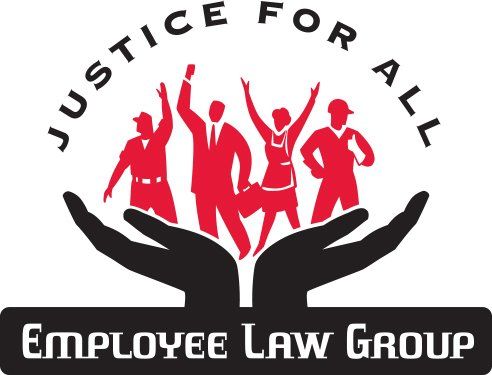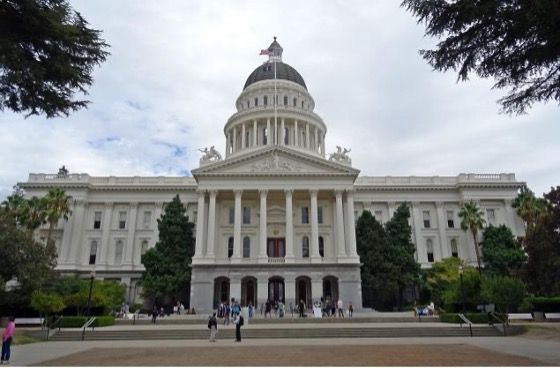- WHO WE HELP
- ABOUT
- GET STARTED
-
CASES WE TAKE
- UNPAID WAGES
- CLASS ACTION SUITS
- FAMILY & MEDICAL LEAVE
- PREGNANCY DISABILITY LEAVE
- HARASSMENT
- NEGOTIATION OF SEVERANCE
- EMPLOYMENT CONTRACT NEGOTIATION
- WORKPLACE CLOSURES
- DEFAMATION OF CHARACTER
- BAD REFERENCES
- EXPENSE REIMBURSEMENT
- ILLEGAL DEDUCTIONS FROM WAGES
- MINIMUM WAGE VIOLATIONS
- UNPAID OVERTIME
- UNPAID COMMISSIONS
- WRONGFUL TERMINATION
- SEXUAL HARASSMENT
- LOS ANGELES EMPLOYMENT LAWYER
- LOS ANGELES DISCRIMINATION LAWYER
- WHISTLEBLOWER RETALIATION
- FAQs
- BLOG
- CONTACT
Stay Compliant in California: Termination and Employment Separation Essentials
If you own or manage a business in the state of California, it’s essential to stay compliant with state and federal laws regarding employee termination and separation. And if you’re a worker, it’s also vital to know your rights when ending employment. Here are some of the most important questions about the process that both sides need to pay attention to.
Yes. This means that either the employer or the employee can end the relationship at any time for nearly any reason (with or without cause), without notice.
However, there are some scenarios where “at will” status does not apply:
- When there is an employment contract or, sometimes, an implied contract
- When a worker is wrongfully terminated (see more below)
- When firing an employee violates public policy
When workers are terminated based on fraudulent misrepresentations
Are Employees Required to Give Notice When They Leave a Job
Unless a contract stipulates otherwise, workers are not required to give notice to employers before leaving. This is a courtesy and not mandatory. Giving advance notice may be beneficial, though, if the employee would like references from the employer or may want to be hired back in the future.
What Are Employers Required to Give Workers Before/Upon Termination?
Federal requirements
- If layoffs are covered under the WARN Act, the employer must give workers at least 60 days’ notice of termination.
- If the company has 20 or more employees, it must provide employees with COBRA options to continue healthcare insurance.
- In some situations, the IRS must be notified about terminated employees in order for them to provide information about
retirement benefits.
California requirements
In California, workers must be given:
- The For Your Benefit pamphlet from the California Employment Development Department (EDD)
- Written notice per California Unemployment Insurance Code 1089 in print or via email if the employee works remotely
- If there are more than 20 employees, DHCS 9061 regarding health insurance premium payments
- Information pertaining to Cal-COBRA rights, as distinct from federal COBRA mandates
- Information regarding continuing, extending, or converting disability coverage
What Is Wrongful Termination?
Wrongful termination is unfair dismissal. Usually, this falls into one of three categories:
- Violation of an employment contract
- Discrimination
- Whistleblower retaliation
What Is a Separation Agreement?
A separation agreement is a legally binding contract between an employer and an employee who is about to be terminated. Often, this is because of downsizing or business acquisition, and a severance package is involved.
The employee agrees to certain aspects of the agreement (within the bounds of the law — see below) in order to receive their severance pay. It should be noted that severance is generally not required unless it is part of an employment contract or negotiated as part of corporate restructuring during a merger or acquisition.
What Is a Waiver of Claims?
A waiver of claims (aka release of claims) is the meat of most separation agreements. It states that the employee gives up the right to make claims later against the employer, such as suing them after the fact for something they believed was unlawful.
In California, certain workplace rights cannot be waived in a separation agreement, including:
- Unemployment benefits
- Workers’ compensation claims and benefits
- Compensation the worker was entitled to receive, such as wages, back pay, overtime pay, commissions, etc., even if they are in dispute
- Age discrimination claims, in most cases
How Long Do Workers Have to Review a Separation Agreement Before Signing?
In California, workers must be given five days to review a separation agreement and cannot be forced to sign it on the spot.
Are Non-Disparagement Clauses Legal in California?
Some aspects of separation agreements may not be legal in the state of California, which has particularly strong protections for workers. Non-disparagement clauses mean terminated employees may not speak ill of their previous employer. These clauses are generally considered allowable.
However, non-disparagement clauses do not forbid the employee from talking about unlawful acts in the workplace, such as harassment or discrimination. This was strengthened by the Silenced No More Act (Senate Bill No. 331), which was approved by the governor in 2021.
Are Non-Compete and Non-Solicitation Agreements Enforced in California?
In other states, non-compete and non-solicitation agreements are common elements of separation agreements too. A non-compete clause says that the employee can’t work for a competitor of their former employer for a predetermined amount of time after termination.
A non-solicitation agreement means the employee cannot solicit business from the former employer’s clients, nor can they poach employees to come work with them at a new company.
California regards non-compete and non-solicitation clauses as being too punitive for workers and, therefore, does not enforce them, except under narrow circumstances, usually involving the sale of a business.
Furthermore, companies headquartered outside of California with California employees do not get a choice of law should the state where they are based have laws more favorable to them in this regard. They must abide by California law, not the laws of the other state.
Can Employees Divulge Proprietary Information or Trade Secrets Once They Leave a Job?
No, even if it is not stipulated in a separation agreement, employees may not share certain information with other entities once they leave their job. This includes things like financial data, client lists, private legal history, manufacturing formulas, and trade secrets. Employees who are not sure about what constitutes proprietary information should discuss this with the employer prior to their termination.
When Do Employers Need to Pay Final Paychecks to Workers?
Employers must pay terminated employees within a specified period according to these rules:
- Discharged employees must be paid all their due wages, including any vacation they have accrued, immediately upon termination (not mailed a check later).
- An employee who offers at least 72 hours’ notice of quitting must also be paid all their accrued wages and vacation pay when they complete their last day of work.
- If an employee quits without giving at least 72 hours’ notice, the employer has 72 hours to pay them from the time of quitting.
- Discharging an employee or the employee quitting does not release the employer from paying bonuses, commission, and other non-wage pay, unless this is part of the employment contract.
When Should You Consult with an Employment Attorney About Leaving Your Job or Being Terminated?
As you can see from the questions above, terminating a job or being discharged can get quite complicated and involve a number of federal and state laws. Not all employers obey the law when it comes to firing workers or paying them after they quit. This is why many workers in California choose to work with an employment lawyer, like Employee Law Group.
An employment attorney can make sure your rights are upheld. They can assist with things like:
• Timely payment of wages, commissions, and money you are owed
• Reviewing separation agreements and severance packages
• Deciding if you have a case against an employer for unlawful acts
• Helping you get reinstated if you are wrongfully terminated
Do you have questions about a separation agreement or the details of your job termination? If you’re in the Los Angeles area, reach out to Employee Law Group for your free initial consultation by contacting us online or calling the office at 310-407-7358.









EMPLOYEE LAW GROUP | JUSTICE FOR ALL
21250 Hawthorne Blvd. Suite 500, Torrance CA, 90503
500 Capitol Mall, Suite 2350, Sacramento, CA, 95814

